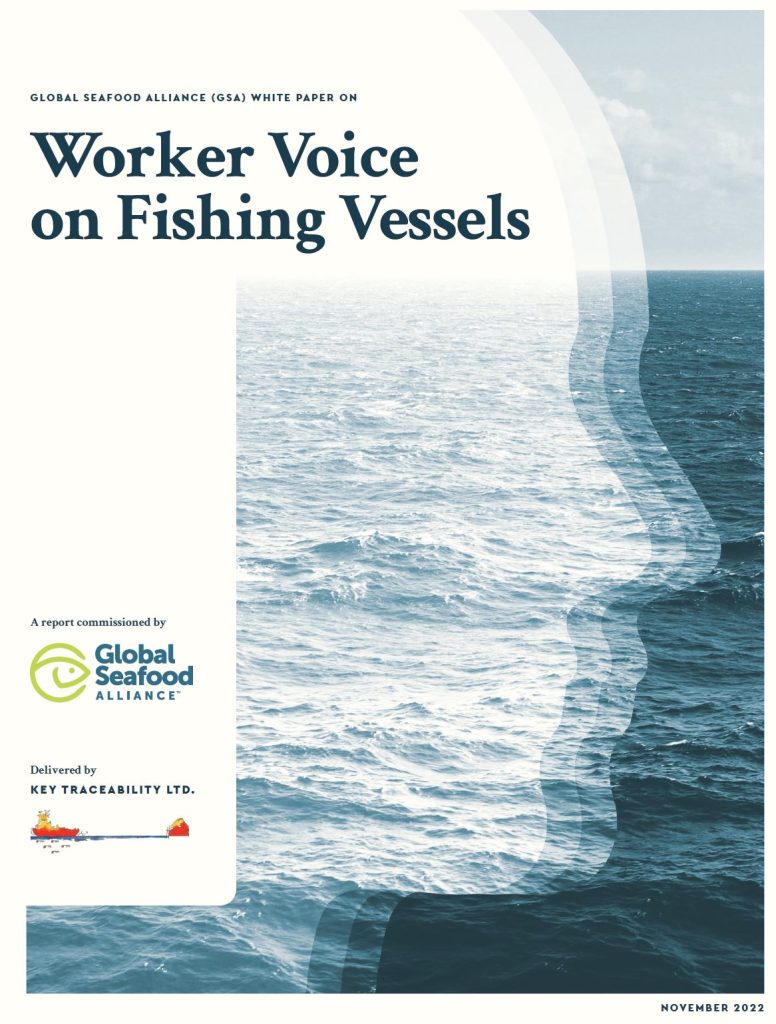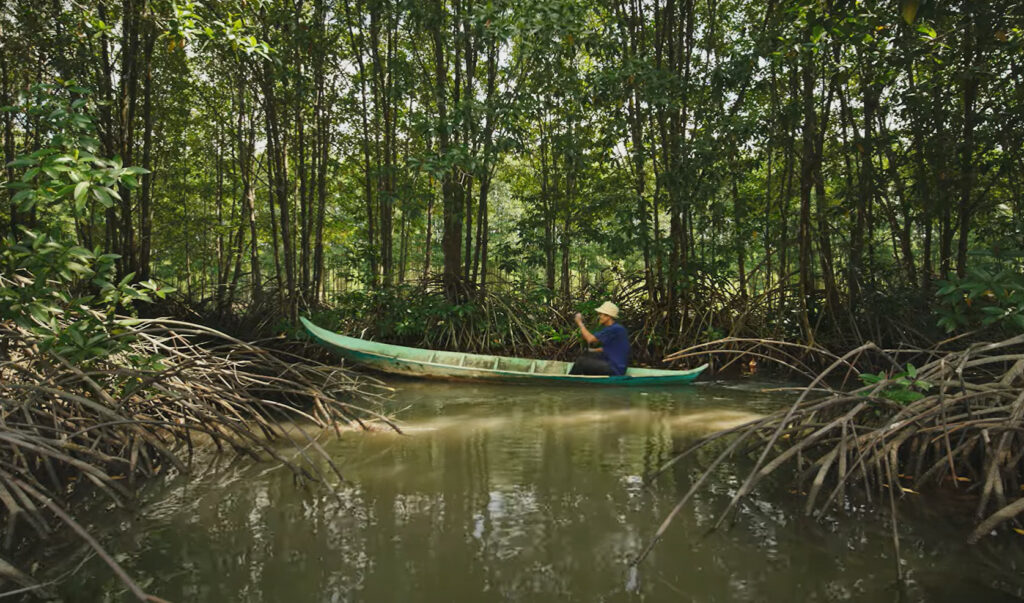Global Seafood Alliance Releases White Paper ‘Worker Voice on Fishing Vessels’
The Global Seafood Alliance has released a white paper entitled Worker Voice on Fishing Vessels. Funded by the David & Lucile Packard Foundation, research for the paper began in June 2020. The intent was to collate meanings and understanding of the terms “Worker Voice” and “Grievance Mechanism” as they relate to those working on fishing vessels around the world, as well as highlight examples of mechanism in place, projects and pilots.
“We want to know that crews working on Responsible Fishing Vessel Standard (RFVS)- certified vessels have safe, effective access to third-party advice and resolution mechanisms. We can only do that by building consensus on what best practice looks like; what we can expect now and what needs to improve,” said Melanie Siggs, Director, Global Seafood Alliance. “Right now that consensus doesn’t exist and this project was the critical starting point.”
Key Traceability was contracted to lead the research. An expert Advisory Group which included NGOs, retailers and consultants on social issues in fishing was recruited. Covid-19 restrictions prevented in-country outreach around the world, but rigorous desk-based research was combined with 1:1 interviews and a survey that was extended in 9 languages and benefited from the recruitment of local champions to deepen regional opportunity to participate.
“We very much welcome this important contribution to the ongoing work to ensure the human rights of people in the fishing sector are respected, regardless of where in the world they are working. There is still a lot of work to do to ensure that fishers around the world have effective grievance mechanisms, but this report is critical to building our understanding of what is currently in place, and what we as businesses can do to support improvement,” said Andy Hickman, Head of Human Rights (Food and Procurement), Tesco, and Project Advisory Group member. “Thank you to the David and Lucile Packard Foundation and Global Seafood Alliance for their support for this work, and thank you to all those who contributed to the study.”
The project found that there is an increasing awareness of the term Worker Voice, but less experience or knowledge of mechanisms for fishing vessel workers. It was noted that most relevant projects have been initiated and developed by Civil Society Organisations and private companies, there is currently a lack of fishing industry specific government led initiatives. Most of these initiatives have taken place in EEZs and few have gone to scale. Further that, often, authorities are not trusted by fishers to resolve grievances effectively, especially for migrant fishers.
Download the full report here.
“Much of what we documented from the research, interviews and the surveys, wasn’t a surprise, but it was important we found evidence. For example, it was quickly apparent that there is a lack of published literature explaining what a grievance mechanism on fishing vessels looks like,” said Iain Pollard, who led the research team at Key Traceability. “Also that grievance procedures on vessels are rarely transparent (unless they are reviewed independently) so understanding their ‘fairness’ in reaching a resolution or ‘protection of the fisher’ is challenging. The next step of building consensus to address these challenges is really important now.”
“Power imbalance is massive on fishing vessels; you need a safe form of reference on the vessel as well as a support network and trusted authority on land.” — Quote from interviews/surveys on the Worker Voice on Fishing Vessel report, 2020.
The report recommends that work to build consensus of what Worker Voice and Grievance Mechanisms should look like, what should be expected and how to measure effectiveness of these mechanisms is critical. Such work should provide outcomes for a wide range of stakeholders from assurance providers to buyers, regulators to fishing vessel owners and their crews. Further, to that end, multi lingual, accessible education and training will be essential for these different groups. It was noted that considerable amount of input in this first project was out of scope, but important to take forward to a project that would build consensus.
“Grievance mechanism is a channel to make claims anonymously. Worker Voice is the expression of workers on their rights and conditions. Worker empowerment is how workers can come together to express their voice and resolve their grievances.” — Quote from interviews/surveys on the Worker Voice on Fishing Vessel report, 2020.
About the Global Seafood Alliance
The Global Seafood Alliance is an international, nonprofit trade association dedicated to advancing responsible seafood practices through education, advocacy and third-party assurances. Through the development of its Best Aquaculture Practices and Best Seafood Practices certification programs, GSA has become the leading provider of assurances for wild and farmed seafood globally. The organization’s work addresses the full spectrum of responsibility, from environmental responsibility and social accountability to food safety. Established in 1997 as the Global Aquaculture Alliance, GSA is headquartered in Portsmouth, N.H., USA. To learn more, visit www.globalseafood.org.
Key Traceability (KT) is a company based in England and with an office in Taiwan set up to “Unlock Seafood Supply Chains” that specialises in offering independent sustainability advice to the seafood sector globally. KT have been in business for six years and are trusted by industry as well as NGOs to carry out fishing vessel or aquaculture social audits, traceability, IUU and fishery assessments, Fishery Improvement Projects (FIPs). With a full‐time staff of nine and supported by an international network of consultants and social auditors we can work on any fishery or aquaculture in the world to report on social, economic, or environmental conditions related to seafood. For more information, email i.pollard@keytraceability.com.





